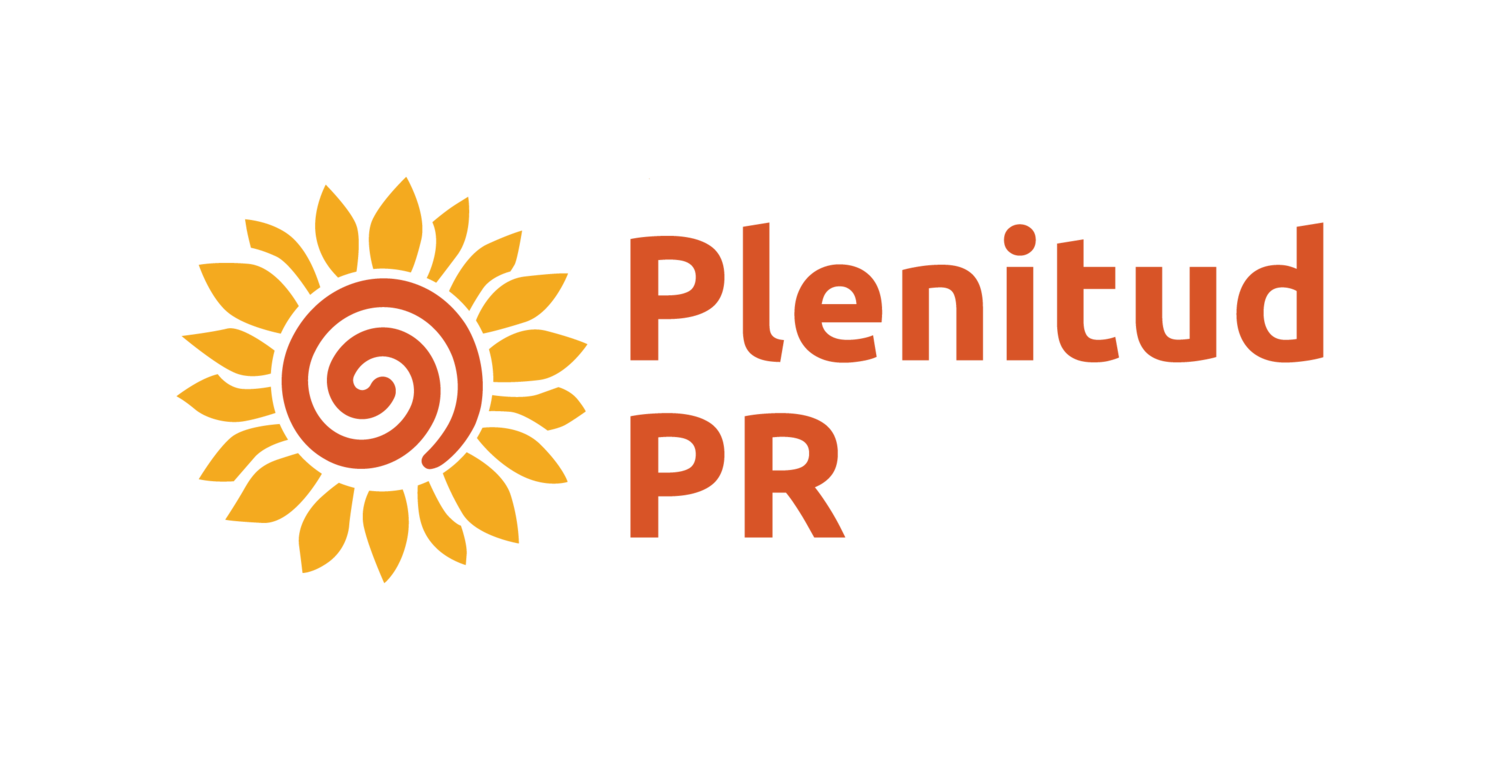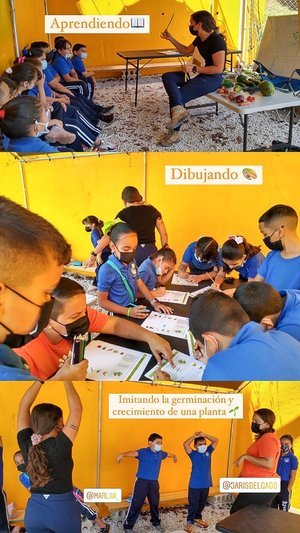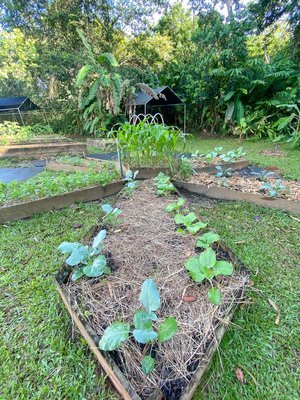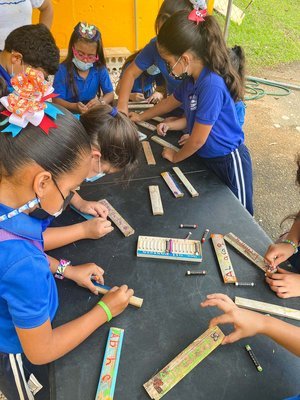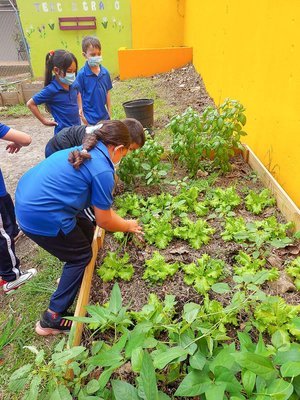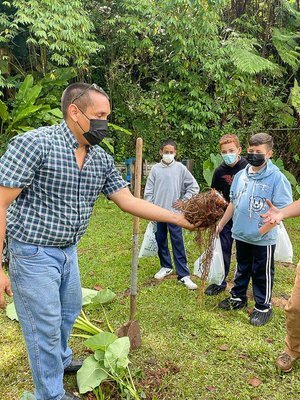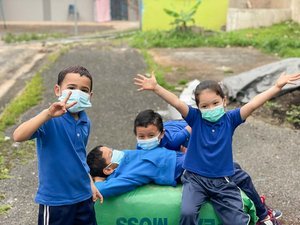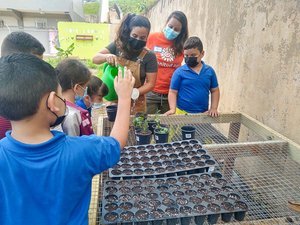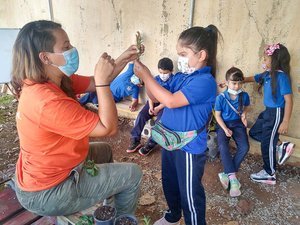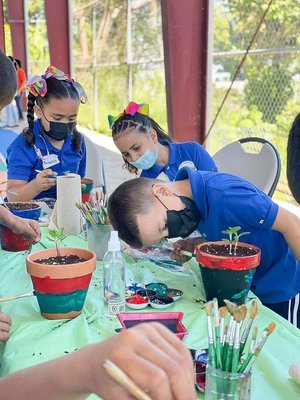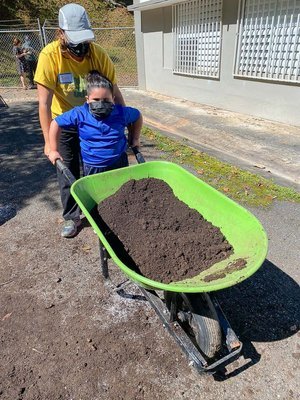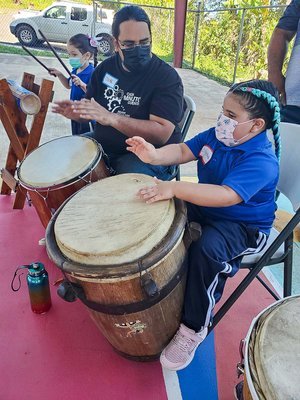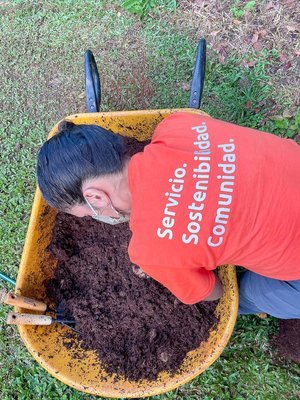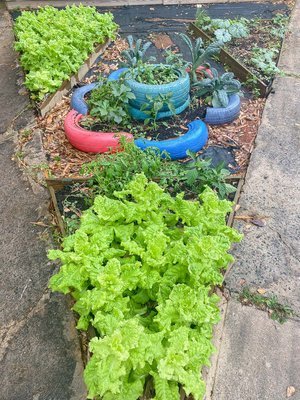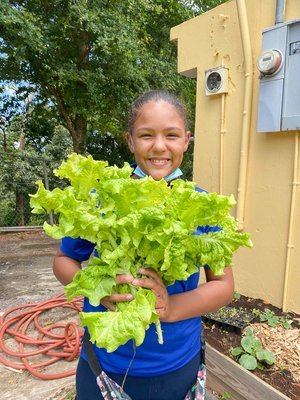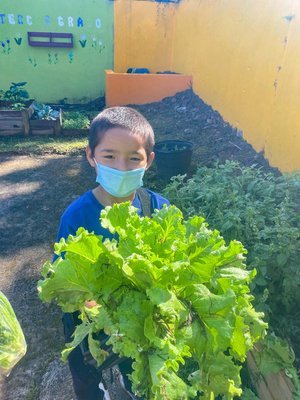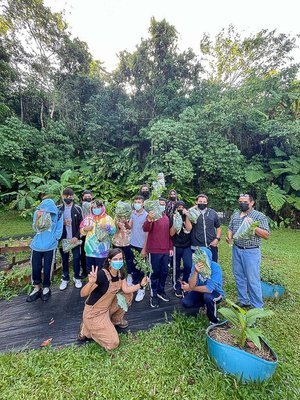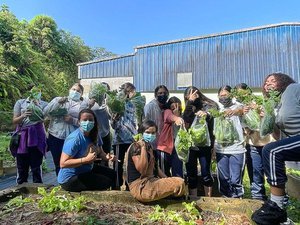Growing Seeds of Hope
I am a farmer and a graduate student, and this year I had the opportunity to work as an educator and curriculum developer in the Crezco en Plenitud program at Plenitud PR for the first time. Crezo en Plenitud currently impacts more than 400 children, youth, and family members, teaching a holistic and agroecological curriculum in 4 public schools located in Las Marías, Maricao and Añasco, Puerto Rico. We carry out weekly lessons in “eco-creative spaces” at two partner schools: Dr. Silverio Medina Gaud in Las Marías and Raul Ybarra in Maricao. These spaces are dedicated to school gardens, educational art murals, composting stations and rainwater harvesting systems.
As part of my service this past semester, I supported the development of a holistic curriculum for students that integrates themes of art, movement and mental health with agroecology. This curriculum was taught and applied right in the school gardens. Developing a holistic curriculum for Puerto Rican children and youth requires balancing many factors and challenges. A very important factor for me and for our team is to plant that seed of hope, love and appreciation for agriculture in Puerto Rico. In a country where we import 85% of our food and where our history has been slowly forgotten, we firmly believe that going back to our roots is essential for the formation of the next generation of leaders.
When I think of all that Puerto Rico is to me, I think of the diversity of flora, fauna, food, music, and above all - my people. Our people are what makes us unique. That is why in the process of developing activities for children, I always have my archipelago in mind. Our activities reflect the complexity and diversity of the Puerto Rican people.
In one of our activities in the school garden, we learned about the importance of polycultures. Contrary to monocultures (areas where only one crop is planted), polycultures are based on the ancestral knowledge of growing several crops simultaneously (also known as “companion planting”). For example, planting tomato and basil together helps the healthy growth of both crops. Through this lesson, we also had the opportunity to understand the importance of diversity in our communities. As in nature, the greater the diversity of students in our schools, the more strength and resilience we will have.
We also learned that just like plants, although we are different, we all have something to contribute, and we all have the same value.
A major challenge in our service is resource inequality. We have all observed how the pandemic has impacted our communities, especially children and youth. In rural areas such as Las Marías and Maricao, the community has a much more difficult, sometimes impossible, time accessing resources that we usually take for granted in other towns. For this reason, the work carried out by the Crezco en Plenitud team is essential for the healthy growth of our children. Our activities take into consideration the situations students are going through, and create a space where children can enjoy, laugh, learn and heal.
Our mission goes beyond developing the next generation of farmers -we want to create citizens with high self-esteem, self-efficacy, and resilience.
Another vital factor is the constant economic, social and climatic change in our country. The activities that I have carefully developed face many barriers to implementation, often as a result of lacking the resources to do so. As an educator I have learned to be flexible, adapt to circumstances and make the best of the moment. I have realized that the most important aspect of this service is not how many lessons can be covered, but the genuine connection that we can make with the students. What students need most is to be heard, to be accepted and to be loved. That goes beyond lessons on seeds, compost or pests. That is why I see the children themselves as seeds that need to be watered with affection, fertilized with values and cultivated with a lot of love.
The privilege of serving on this team has allowed me to develop skills to manage the challenges that are constantly presented to us as educators. But the greatest privilege has been witnessing the transformation of the children in every way. During the course of the semester, they improved their motor skills, self-esteem and teamwork. In other words, they loved working with the soil and the plants! While I initially started out as an educator teaching a subject, I ended up being a friend in whom the children place their trust and support.
A few weeks ago, at the end of the school semester, everyone had the opportunity to harvest the crops they grew and cared for this year. You could feel the excitement in the air! Some of the students even tried vegetables that they had never eaten before, like kale and collards! I do not deny that I have had difficult moments during my first semester as an educator, but it is all worth it to see the smiling faces of children when entering their little corner garden of peace.
